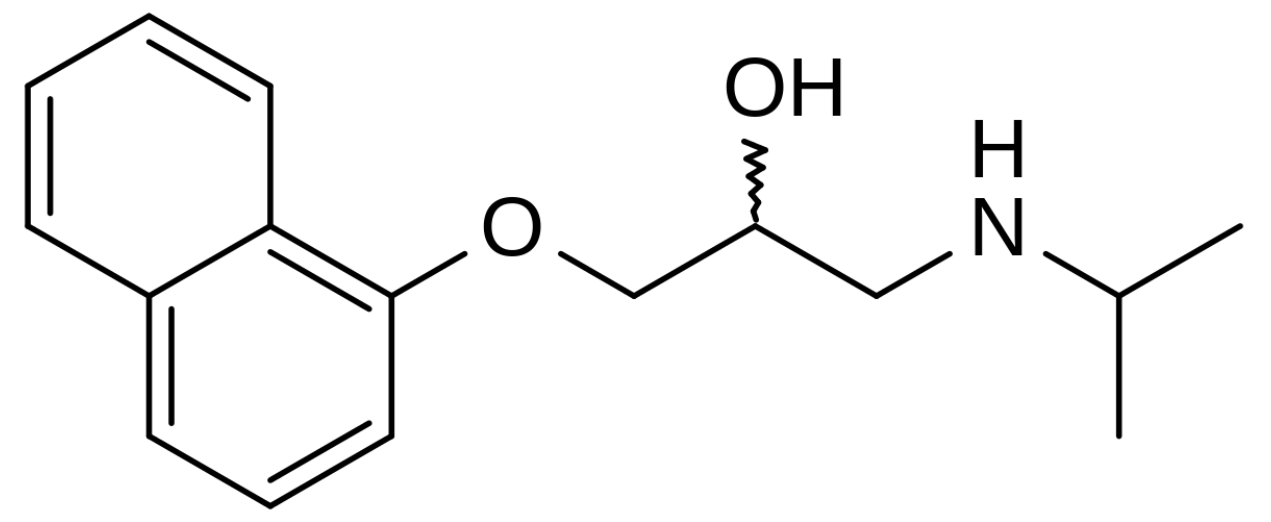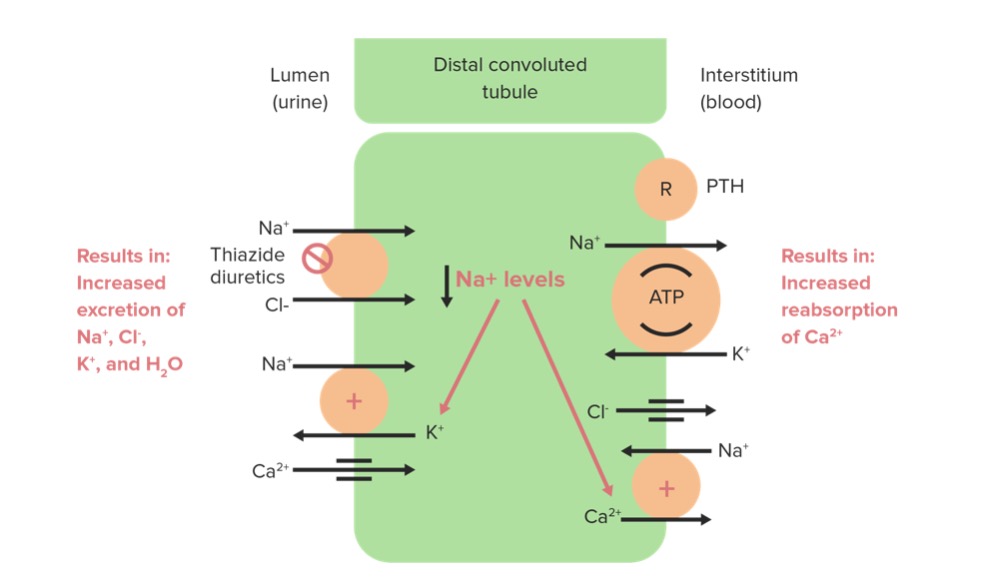Playlist
Show Playlist
Hide Playlist
Alpha- and Beta-Blockers
-
Slides ANS Overview ANS Pharmacology.pdf
-
Download Lecture Overview
00:01 So let's talk about those drugs that directly act on the receptors. Let's cover the blockers of those receptors first. 00:09 So alpha blockers are nonselective and selective. The nonselective alpha blockers are Phenoxybenzamine and Phentolamine. 00:16 I want you to remember this drugs. I'm only going to pick the ones that you are going to be tested on. There are literally hundreds within each class. So let's just focus on the important ones but you do need to know them. The alpha 1 selective agent of choice is Prazosin and the alpha 2 selective agent is Yohimbine. I have never used Yohimbine in clinical practice but I always remember it because it's the one that we had to memorise for exams. Let's talk about beta blockers now. 00:45 The nonselective prototypical beta blocker is Propanolol. Beta 1 selective agent, the example that we always use is Atenolol which is kind of an older beta blocker and replaced by newer ones. But it's the prototypical one that I want you to remember. 01:01 Beta 2 selective beta blockers is Butoxamine which is almost never used clinically but it's important for research. 01:09 And it is the prototypical drug so you do need to know it. Beta blockers that start with the letters A-M are generally those drugs that tend to be beta 1 selective and useful for cardiac inhibition. Acebutolol, atenolol, bisoprolol, esmolol, metoprolol. Those are the commonly used clinical ones. But if you remember A-M is beta 1 selective and for the heart you'll be a long way. The beta blockers that start with C, C stands for cardiac. And these are the drugs we tend to use in cardiac failure. So the prototypical drug of the heart failure beta blockers is carvedilol. And the reason why carvedilol is so unique is because it has combined alpha and beta activity. So it helps those patient in heart failure seemingly more than the other beta blockers. Now beta blockers that start with letters between N and Z tend to be nonselective beta blockers. Nadolol, pindolol, propanolol, timolol, these are all nonselective beta blockers. 02:18 Let's go into more detail with the beta 1 blockers. Remember that the more selective the drug is for the beta 1 receptor, the better it is for the lung because you have fewer lung side effects. Remember you don't want to have beta 2 blocking activity with your beta blocker. With rhythm control it's great for breaking supraventricular tachycardias, preventing ventricular tachycardias and it helps with rate control in atrial fibrillation. We also use beta 1 blockers in heart failure but only after the patient has been stabilised. I often use beta blockade in blood pressure control and interestingly enough we can use propanolol for anxiety. Propanolol is one of the first drugs of the beta blocker class and we discovered that people who tended to get stage fright or anxious in front of a crowd would often take propanolol, it would help calm down that thumping heart sensation and people did quite well. I still use this in my practice to treat patients who gets stage fright and you'd be suprised how many times I have to treat people for it. A little secret that's kind of fun if you take propanolol before a lie detector test, it's possible that you will pass the lie detector test without getting in trouble. But just don't tell the FBI I said that. What about beta blockers in pregnancy. So labetolol is the most used blood pressure drug in pregnancy. We have over a million women years of experience using labetolol as blood pressure control. I use it all the time in my pregnant hypertensive patients. It's a beautiful drug. It's nice, it's balanced, it's got both alpha and beta activity, and the nice thing about that, is that it prevents reduced placental flow. It has a huge wide therapeutic window. So we can go anywhere from a 100mg a day to 2400mg a day and people have tolerated it based on their dose.
About the Lecture
The lecture Alpha- and Beta-Blockers by Pravin Shukle, MD is from the course ANS - Pharmacology.
Included Quiz Questions
Which beta blocker also acts on alpha receptors?
- Labetalol
- Acebutolol
- Propranolol
- Metoprolol
- Atenolol
Which of the following is categorized as a non-selective alpha-adrenergic blocker?
- Phentolamine
- Prazosin
- Butaxamine
- Atenolol
- Yohimbine
What is NOT an indication for beta-blocker therapy?
- Unstable heart failure
- Hypertension in pregnancy
- Rate control in atrial fibrillation
- Social/performance anxiety
- Supraventricular tachycardia management
Customer reviews
5,0 of 5 stars
| 5 Stars |
|
2 |
| 4 Stars |
|
0 |
| 3 Stars |
|
0 |
| 2 Stars |
|
0 |
| 1 Star |
|
0 |
It helped me a lot to understand this topic better
i understood the concepts right away. A great way of explaining from Doctor Shukle. Thank you





